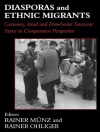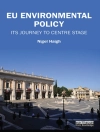What is terror? What are its roots and its results — and what part does it play in human experience and history? This volume offers a number of timely and original anthropological insights into the ways in which acts of terror — and reactions to those acts — impact on the lives of virtually everyone in the world today, as perpetrators, victims or witnesses.
As the contributors to this volume demonstrate, what we have come to regard as acts of terror — whether politically motivated, or state-sanctioned — have assumed many different forms and provoked widely differing responses throughout the world.
At a deeper level, the contributors explore the work of the imagination in extreme contexts of danger, such as those of terror and terrorism. By stressing the role of the imagination, and its role in amplifying the effects of experience, this collection brings together a coherent set of analyses that offer innovative and unexpected ways of understanding a major global problem of contemporary life.
Tabella dei contenuti
Introduction Andrew Strathern and Pamela J. Stewart University of Pittsburgh, USA
1. ‘Terror Against Terror’: 9/11 or ‘Kano War’ in the Nigerian Electronic Press? Misty L Bastian Franklin and Marshall College, USA
2. Vigilante Organisations, the Politics of Theft, and Imagined Conceptions of Community among the Kuria of Kenya Suzette Heald Brunel University, UK
3. Unspeakable Crimes: Athenian-Greek Perceptions of Local and International Terrorism Elisabeth Kirtsoglou University of Wales, Lampeter, UK
4. The Indian State, its Sikh Citizens, and Terror Joyce Pettigrew Queens University of Belfast, UK
5. Between Victims and Assailants, Victims and Friends: Sociality and the Imagination in Indo-Fijian Narratives of Rural Violence during the May 2000 Fiji Coup Susanna Trnka University of Auckland, New Zealand
6. Narratives of Violence and Perils of Peace-Making in North-South Cross-Border Contexts, Ireland Pamela J. Stewart and Andrew Strathern University of Pittsburgh, USA
7. The Sign of Kanaima, the Space of Guayana and the Demonology of Development Neil L. Whitehead University of Wisconsin, Madison, USA
8. Imaginary Violence and the Terrible Mother: The Imagery of Balinese Witchcraft Michele Stephen La Trobe University, Australia
9. Afterword Neil L. Whitehead University of Wisconsin, Madison, USA
Circa l’autore
Neil Whitehead (1956-2012) was Professor of Anthropology and Religious Studies at the University of Wisconsin, Madison, USA. He is co-editor of Terror and Violence (Pluto, 2005).












